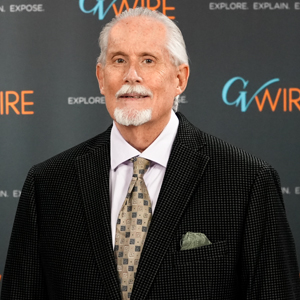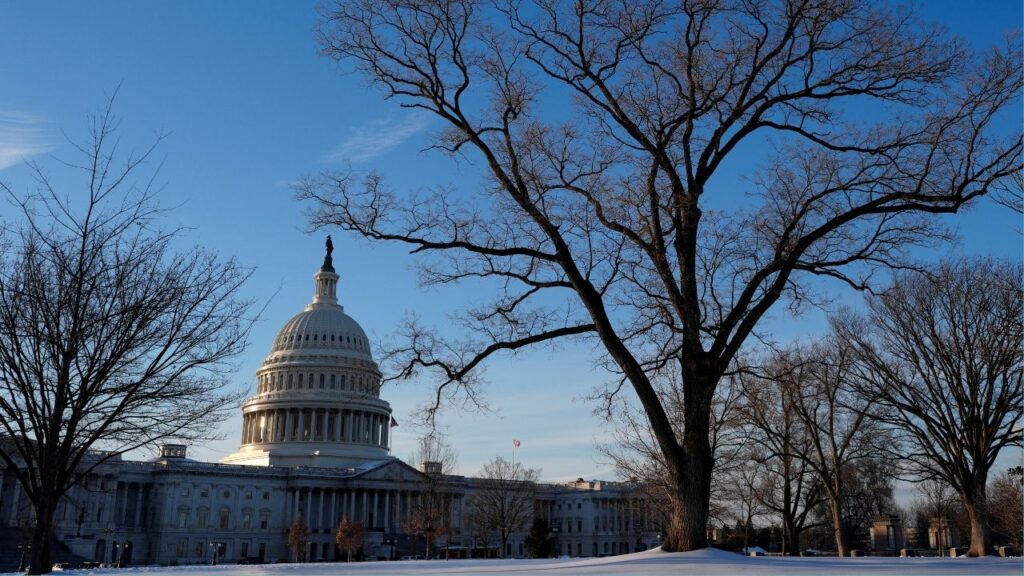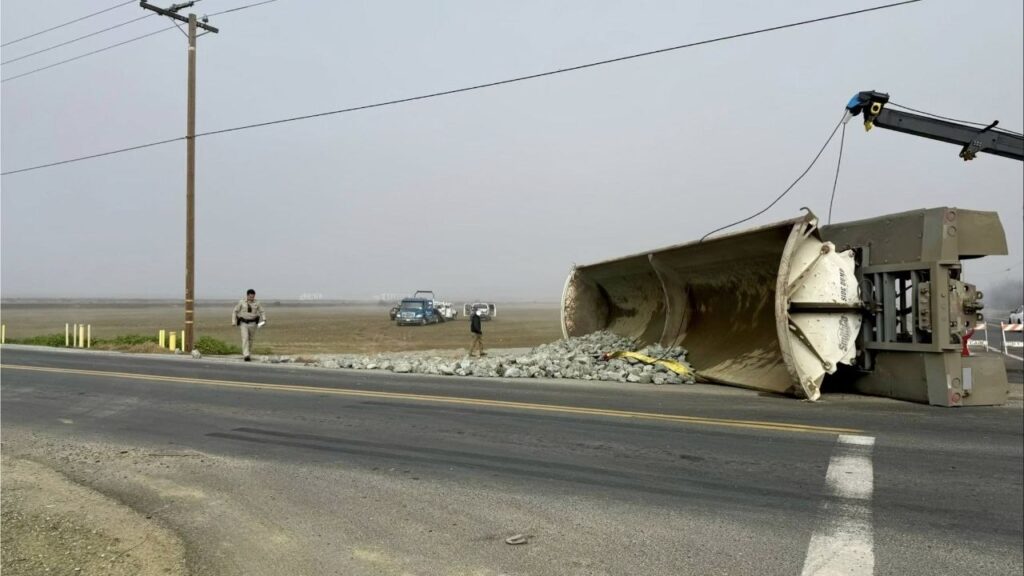George F. Gruner, who led The Fresno Bee newsroom as executive editor in the 1980s, died Sunday at the age of 99. (GV Wire Composite)

- George F. Gruner, who led The Fresno Bee newsroom as executive editor in the 1980s, died Sunday at the age of 99.
- He was part of "The Bee Four," who were jailed for 15 days after refusing a judge's order to reveal a source.
- Mr. Gruner, a Battle of the Bulge veteran, also authored three books on military and California history.
Share
|
Getting your Trinity Audio player ready...
|
George F. Gruner, who led The Fresno Bee newsroom at a time when the newspaper dominated the Valley’s media, died Sunday at the age of 99, family members said.
He capped a 44-year career in journalism with 33 years at The Bee, retiring in 1988. Mr. Gruner, a Battle of the Bulge veteran, also authored three books on military and California history.
“George Gruner was an exceptional journalist with a remarkable ability to bring out the best in his reporters. He hired me at The Fresno Bee, and I am forever appreciative of his mentorship from the time I was a young journalist to later years in my career. He was always helpful,” said Jim Boren, executive director of the Institute for Media and Public Trust at Fresno State.
“At Fresno State, we were blessed by his participation in the George Gruner Awards for Public Service Journalism. He attended every awards ceremony, including the last one in April, and capped off the evening with words of journalism wisdom.”
Mr. Gruner, perhaps, was best known as the senior member of the “Bee Four,” a group of four Bee journalists who went to jail in 1976 rather than reveal the source of a story about possible corruption in local government contracting.
They were jailed for refusing a Superior Court judge’s order to name a confidential source who provided The Bee with sealed transcripts of a grand jury hearing. They spent 15 days in jail and never betrayed that confidence.
“We preserved the perception among news sources that, when The Bee gave its word about confidentiality, it kept it. … When we say we will protect them, we will,” Mr. Gruner said.
His Early Days in Journalism
The news bug bit the Alameda-born Mr. Gruner before he graduated from high school as he landed a job with the Oakland Post-Examiner. He was a “gummer,” which required him to take strips of paper printed with text from a teletype machine, put gum paste on one side, and glue the strips in order to sheets of paper for transmission to linotype machine operators. The operators then converted the text to “hot type” cast with molten metal.
Two weeks later, he was let go by the Post-Examiner because he wasn’t the required 18 years old for the job. He walked a few blocks down the street where he was hired for the same job by the Oakland Tribune. He then worked his way up to cub reporter at a salary of $21 a week.
Mr. Gruner described the newsroom as “the tail end of ‘The Front Page’ era” — hard-bitten news reporters fighting to beat out each other for stories while sharing close newsroom spaces and a special camaraderie.
“It was hell-for-leather style,” he said. “We all wore hats with press cards stuck in them. … No question, it was more fun then. Life was simpler. It was a game, the newspaper game, fighting the clock.”
At 18, Mr. Gruner entered the Army and shipped out to England, France and Germany, serving with an anti-aircraft artillery unit during World War II. He served briefly under Gen. George Patton and was part of the American forces overrun by the Nazis in the early stages of the Battle of the Bulge.
Right Place at the Right Time
Following the end of the war, Mr. Gruner returned to the Oakland Tribune where he met his future wife Irene, a reporter from Sanger. They married, left the paper for European travel in 1952, and had a son, Richard. Mr. Gruner went to work in Germany for Stars and Stripes, the newspaper of the Armed Forces, and returned to California in 1954.
“I walked in the door of The Bee at the right time and got a job on the copy desk in February 1955,” Mr. Gruner said. He subsequently worked on the copy desk, editing news wire stories, and moved to the city desk, editing articles about Fresno. Mr. Gruner became assistant city editor in 1956 and city editor in 1961. He was promoted to assistant managing editor and became managing editor in 1971. His title changed to executive editor in 1981.
Other highlights of Mr. Gruner’s career with The Bee included meetings with Presidents Carter and Reagan, a Japanese prime minister and countless politicians. He also was proud of The Bee’s selection by the Pulitzer Prize jury of working journalists for its coverage of the 1983 Coalinga earthquake, a judgment overruled by the Pulitzer board, which awarded the prize to another paper.
In recognition of his personal public service and the quality of journalism he maintained and valued, the George F. Gruner Awards for Meritorious Public Service in Journalism are awarded annually by the Department of Media, Communications and Journalism at Fresno State. The awards honor outstanding community service in newspaper journalism in the central San Joaquin Valley.
Celebration of Life Scheduled
No funeral services are planned. Mr. Gruner’s remains have been donated to the Willed Body Program at the University of California, San Francisco. A celebration of the life of George F. Gruner will be held on Oct. 26, 2024, at 11 a.m. in the Tolladay Theater at The Terraces at San Joaquin Gardens.
RELATED TOPICS:
Categories

US Booed, Cheered During Milano Cortina Olympics Opening Ceremony

Arizona Court Strikes Down Abortion Restriction Laws

















